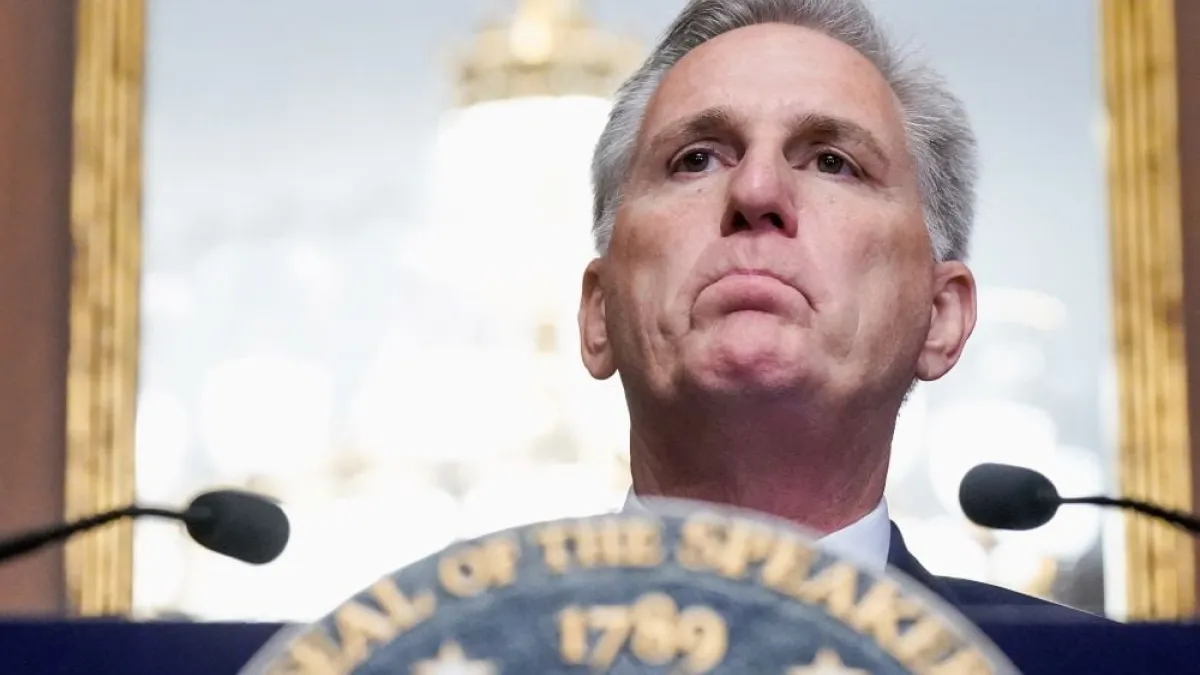
Congress Passes 45-Day Funding Bill to Avert Shutdown
The government will not shut down tonight. After weeks of drama, the House and Senate on Saturday both passed a hastily arranged 45-day extension of federal funding, averting an interruption in government operations that was set to begin at midnight.
Once signed by President Joe Biden, the legislation will avoid financial pain for millions of federal employees and military service members and provide more time for the House and Senate to work through their annual funding bills, though it could set up another shutdown showdown in mid-November. The new stopgap also includes money for disaster relief but leaves out billions in additional aid for Ukraine.
The short-term bill passed the House by an overwhelming and bipartisan 335-91 margin, far exceeding the two-thirds majority needed under the fast-track suspension of the rules being used. The votes in favor of the measure included 209 Democrats and 126 Republicans. Ninety Republicans voted against it, as did Democratic Rep. Mike Quigley of Illinois, who objected to the lack of money for Ukraine.
The Senate, which discarded its own planned stopgap that had included assistance for Ukraine, then approved the House-passed measure, 88-9, just a few hours before the deadline.
McCarthy caves: Saturday’s action came after a stunning reversal by House Speaker Kevin McCarthy, who had long sought to appease hardliners in his conference who demanded steep spending cuts along with strict border security and immigration measures. Yet 21 hard-right Republicans rejected a previous stopgap put forth by the speaker despite its inclusion of GOP border priorities and spending cuts of nearly 30% to most federal agencies.
Unable to pass a stopgap bill with just GOP votes, and likely wary of the political backlash that would befall Republicans if the government did shut down, McCarthy ultimately backtracked after insisting for days on spending cuts and tough border provisions. “Today wasn’t the choice we wanted to have. We tried to pass the most conservative stopgap measure possible,” the speaker said Saturday.
McCarthy now aims to secure some conservative policy priorities through the annual appropriations process. But by relying on Democratic votes to pass the 45-day funding bill, the speaker also opened himself up to potential calls for his ouster from hardline conservatives who had warned against such an approach.
“If somebody wants to make a motion against me, bring it,” McCarthy told reporters Saturday after the House vote. “There has to be an adult in the room.”
House Democrats had objected to the lack of Ukraine funding and delayed the vote on the bill, complaining that they had little time to read its 71 pages — and insisting that it was important to read it in full because McCarthy was less than trustworthy. In the end, though, Democrats celebrated the last-minute developments.
House Minority Leader Hakeem Jeffries told reporters: "We went from devastating cuts that would have impacted the health, the safety and the economic well-being of the American people in 24 hours to a spending agreement that meets the needs of the American people across the board, entirely consistent with what Democrats have said from the beginning is the only path forward: a bipartisan spending agreement that keeps government open, avoids a catastrophic government shutdown and meets the needs of the American people in every possible way.”
Senate Majority Leader Chuck Schumer similarly hailed the bipartisan result. “After trying to take our government hostage, MAGA Republicans won nothing,” Schumer said. Earlier, he said that he and Senate Minority Leader Mitch McConnell agreed to keep fighting for more aid for Ukraine. The White House also said it expects McCarthy to bring up a separate Ukraine funding bill shortly.
The bottom line: A shutdown had seemed inevitable, but McCarthy’s surprising eleventh hour decision to back away from the brink and pursue a bipartisan approach means the lights will stay on at federal agencies. Also continuing: congressional spending clashes, questions about support for Ukraine and uncertainty about McCarthy’s future.